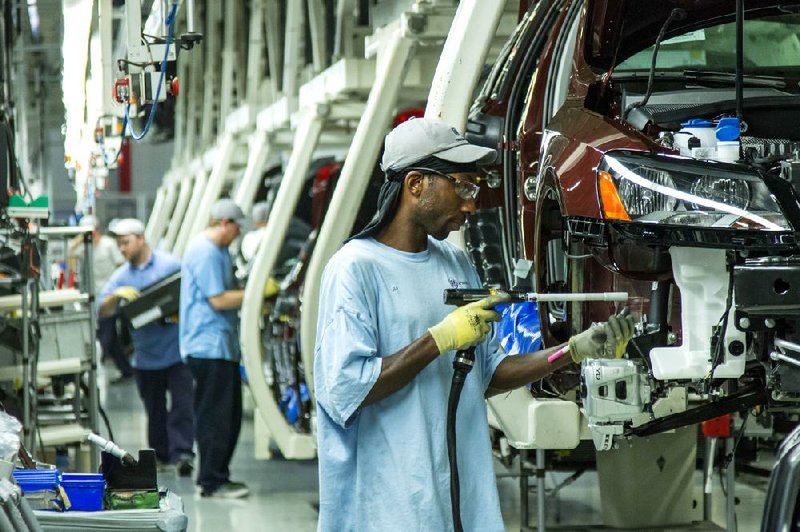Workers at the Volkswagen factory in Chattanooga, Tenn., will vote this week on whether to join the United Auto Workers union.
But instead of discouraging UAW organizers, executives at the German car company are campaigning for them, in a kind of employer-union partnership that has irritated some politicians who prefer there be no union presence in Tennessee.
The state’s Republican leaders campaigning against the UAW say unionization would spread to Tennessee’s other auto plants. On Monday, they threatened to withhold tax incentives for future expansion at the 3-year-old assembly plant if the union vote is successful, according to the Detroit Free Press.
If the UAW is successful, said Sen. Bob Corker, R-Tenn., “then it’s BMW, then it’s Mercedes, then it’s Nissan, hurting the entire Southeast if they get the momentum.”
Volkswagen executives have said they are neutral. The company has acknowledged that it would be interested in establishing something that goes beyond a union - a European-style “works council” that could influence how the plant is run.
Volkswagen’s global works council leader, Bernard Osterloh, said the company sees its culture of worker co-determination as a “competitive advantage.”
The arrangement would also be something new for the UAW, which is more accustomed to the relationships it has with Chrysler, General Motors and Ford. The new works council would be independent of the union, meaning the UAW would give up some control.
While the details of the arrangement would be ironed out after the election, works councils - which are elected by all workers in a factory, both blue- and white-collar, regardless of whether they belong to the union - usually help decide things such as staffing schedules and working conditions, while the union bargains on wages and benefits.
Works councils also have the right to review certain types of information about how the company is doing financially, which often means that they’re more sympathetic toward management’s desire to make cutbacks when times are tough. During the recession, for example, German works councils helped Volkswagen reduce hours across the board rather than laying people off.
In the early 1990s, Harvard labor law expert Paul Weiler interviewed managers about why they valued works councils. One executive told him the councils have three major advantages.
“You’re forced to consider in your decision-making process the effect on the employees in advance. … This avoids costly mistakes,” Weiler quoted the manager as saying. “Second, works councils will in the final run support the company. They will take into account the pressing needs of the company more than a trade union can, on the outside. And third,works councils explain and defend certain decisions of the company towards the employees. Once decisions are made, they are easier to implement.”
For example, Weiler said, one company made an agreement with a works council to introduce a flexible work-time system to permit around-the clock operation through the weekend. Although the works council was under “tremendous pressure from the union not to do this,” it permitted the firm to go ahead.
“Our works-council people are not hostile to rationalization or automation. On the contrary, they ask us to automate, to modernize our machinery so that our operations can be competitive,” an executive with the company told Weiler. “They say, ‘We know that we lose jobs by this, but we agree that this is a good thing.’”
Works councils are not typically allowed to call strikes. If the UAW wants to strike over wages and benefits, it’s still able to do so, but the likelihood of arriving at a mutually agreeable solution without a strike is much higher.
Business, Pages 25 on 02/12/2014

